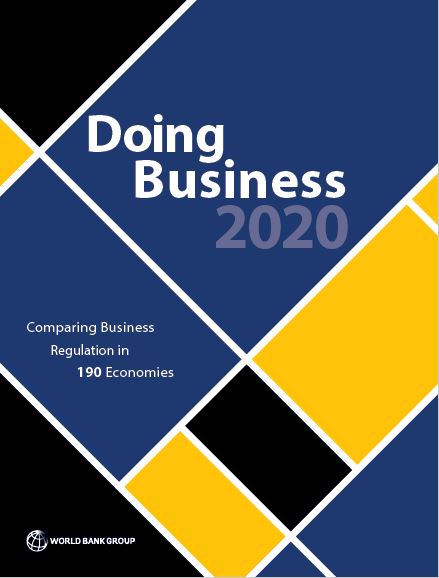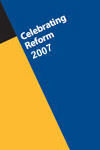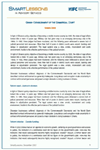
Removing obstacles to entrepreneurship
The case study on reforms analyzes prominent regulatory changes implemented by governments since the inception of Doing Business. Among the most common regulatory changes over the past 17 years are simplifying the requirements to start a company, easing tax compliance burdens, increasing access to credit, and ensuring the survival of viable businesses. The case study also discusses the effects of regulatory changes on various dimensions of economic development and investment activity.

Paying Taxes: Assessing postfiling processes
Modern tax systems seek to optimize tax collections while minimizing administrative and taxpayer compliance costs. A low cost of tax compliance and efficient tax-related procedures are advantageous for firms. Overly complicated tax systems are associated with high levels of tax evasion, large informal sectors, more corruption and less investment.2 Tax compliance systems should be designed so as not to discourage businesses from participating in the formal economy.

Paying taxes: Trends before and after the financial crisis
The global financial crisis of 2008–09 had a dramatic impact on national tax revenue and led to a sharp increase in deficits and public debt. Fiscal measures were part of the policy toolkit that governments brought to bear in supporting the recovery. Doing Business has been monitoring how governments tax businesses through its paying taxes indicators for 9 years, looking at both tax administration and tax rates. The data give interesting insights into the tax policies implemented during the financial crisis of 2008–09.

Implementing electronic tax filing and payments in Malaysia
Taxation is essential for sustainable economic development, and tax administration is a basic function of a successful state. Taxation also helps make a government accountable to its citizens. When governments spend taxpayers’ money, they are more accountable to make budget decisions transparent and accessible. By 2012, 76 of the economies measured by Doing Business had implemented electronic tax filing and payment systems.

Rwanda: Fostering prosperity by promoting entrepreneurship
Since 2004 Rwanda has substantially improved access to credit, streamlined procedures for starting a business, reduced the time to register property, simplified cross-border trade and made courts more accessible for resolving commercial disputes.

Latvia: Maintaining a reform state of mind
Despite being substantially affected by the financial crisis starting in 2008, Latvia continued its reform agenda, adapting it to the new challenges the country was facing. Learn what lessons can be learned about this “reform state of mind” demonstrated by Latvia.

APEC: Sharing goals and experience
The APEC Ease of Doing Business action plan identifies “champion economies” to share information and experience and to assist other members through tailored diagnostic studies. The plan seeks to implement APEC’s view of capacity building as a central part in enhancing cooperation and accelerating progress.

Colombia: Sustaining reforms over time
Colombia’s commitment to regulatory reform has led to substantial improvements in the quality of the business environment and a more solid foundation for private sector development. While the country has more development hurdles to overcome, the measures taken over the past years have greatly improved its competitiveness.

Egypt: Adding a million taxpayers
With 37% of Egypt’s workforce in the informal sector, the government realized reform was the way to broaden its tax base and increase revenues. Tax rates were high, the process of making payments was cumbersome, and tax evasion was the norm. Change was necessary.

Turkey: Giving a facelift to the Turkish tax system
Almost all tax reforms aim at a single goal: to increase revenue. But Turkey’s 2007 reform was different—simplifying and modernizing the tax system were the key goals. The government had been concerned that an antiquated corporate tax law was hindering foreign direct investment. It wanted to align its system with international standards.

Azerbaijan: How to create a world-class taxation system from scratch
The government of Azerbaijan took on the challenge of creating, from scratch, a transparent tax administration system, as was necessary. The country’s tax administration was revolutionized by creating a state-of-the-art online system.

Korea: Better business regulation and improved competitiveness
In Korea the Presidential Council on National Competitiveness, created in 2008, identified regulatory reform as 1 of 4 pillars to improve the economy’s competitiveness, along with public sector innovation, investment promotion, and legal and institutional advancement. Reviewing Korea’s business regulations, the council found that 15% had not been revised since 1998. The council applied sunset clauses to more than 600 regulations and 3,500 administrative rules.

Egypt: Boosting trade
Rachid Mohammed Rachid, Minister of Trade and Industry, describes his experience as a member of the new economic reform team appointed in 2004 by President Mubarak. The team was tasked with reviving the Egyptian economy to achieve economic growth levels of 6 percent, provide employment opportunities to the 650,000 new entrants to the job market and double both the foreign direct investment inflows and total trade through more integration into the world economy.
